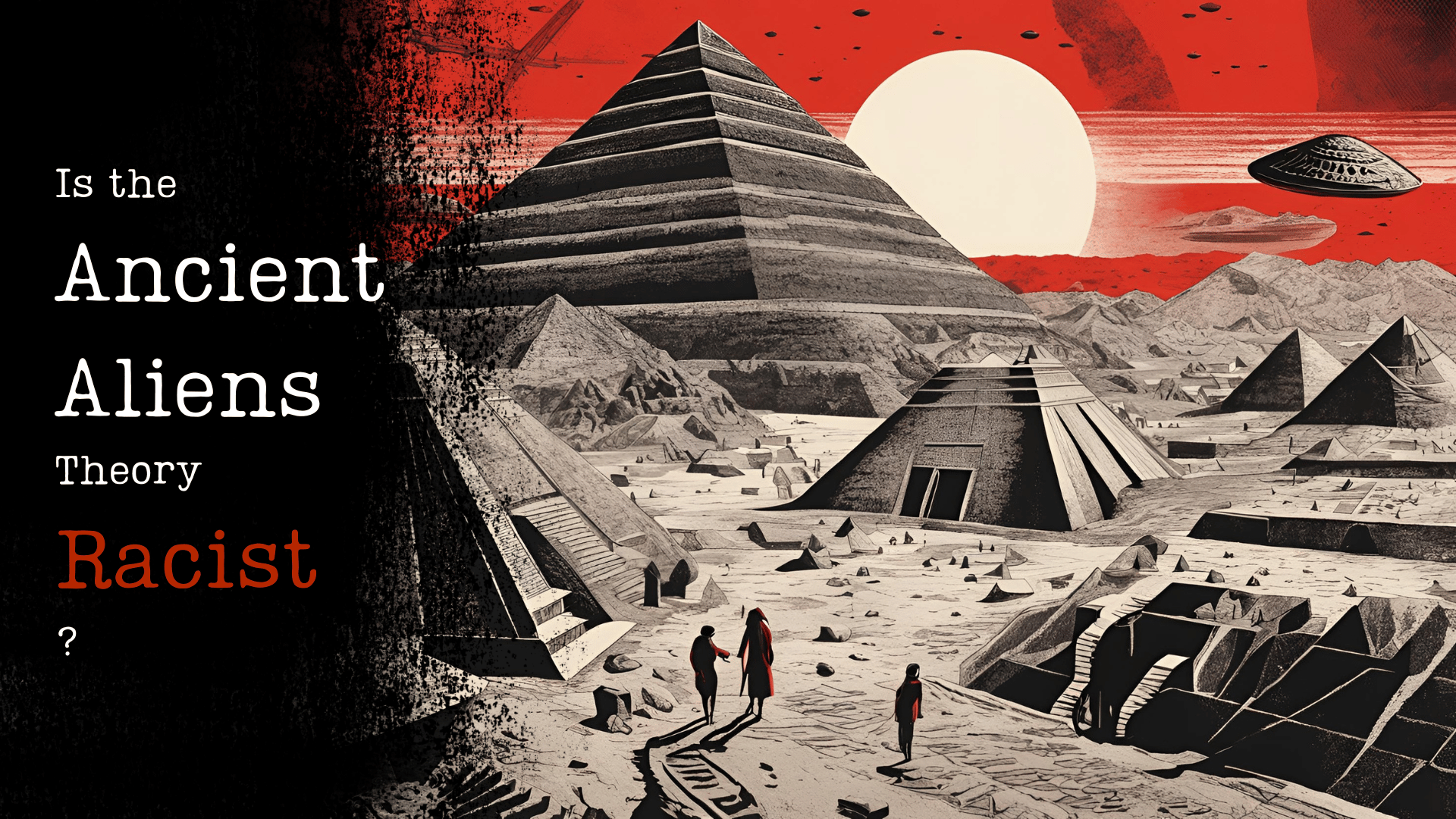There is a theory that keeps reappearing in popular culture, each time with slight variations and different names, but the core remains the same: “Those ancient people couldn’t possibly have built this, so someone else must have.”
While the first part of the theory is pretty constant, the “someone else” part changes: In Erich von Däniken’s popular 1968 book Chariot of the Gods he points to extraterrestrials. So does the highly successful Ancient Aliens television series that has been running continuously since 2009 – now in its 19th season! Netflix was heavily criticised by historians and archaeologists for its 2022 docu-series Ancient Apocalypse featuring Graham Hancock and his belief in an Ice Age “Atlantean” civilisation.
It is rather straightforward for historians and archaeologists to discredit beliefs in aliens, Atlantean civilisations, and other supposed high-technology precursors. I will leave the debunking to the experts who have already done so at length.

This article is about the other part of the hypothesis: “Those ancient people couldn’t possibly have built this.” While this may seem innocent at first glance, the premise contains some problematic underlying assumptions that we should question deeply.
The first question we need to ask ourselves is: Who does this theory target? With few exceptions, the vast majority of the sites popularly and commonly claimed to have been built by “someone else” lie in the Global South: The Pyramids of Giza, the Nazca Lines, Machu Picchu, Göbekli Tepe, Nan Mandol, and many others are situated in regions of the world that were once colonised by Europeans.
It is no surprise that during the era of colonialism (circa 16th to early 20th centuries), the reaction of many Europeans to seeing great monuments on other continents was to assume that the indigenous population couldn’t possibly have built it. At that time it was a commonly-held belief that non-Europeans were “inferior”, especially if they had darker skin tones. While it seemed natural at the time to question who could have built such monuments, are we not still making the same assumptions today, even if we do not hold such clearly racist beliefs?
In this light, we should ask ourselves whether ancient European achievements are questioned in the same way? For example, I am not aware that anyone has ever claimed that the great Roman or Greek sites were built by aliens. Take the Pantheon; a building that would be a major architectural feat to construct even with modern technology is readily attributed to the Romans –no questions asked– while constructions that are similarly impressive elsewhere in the world are questioned. It is usually in the Middle East, Africa, Asia and the Americas that “others” have supposedly been involved in their construction.
With this in mind, does the premise of extraterrestrial or Atlantean influence not reinforce the colonial-era belief that advanced civilisations could not possibly have emerged outside Europe, at least not without external help?

We should also ask ourselves what this theory means to the indigenous civilizations whose monuments are being questioned. Disowning another culture’s heritage to further the “someone else built it” theory and gain television viewers is insulting at best and cultural appropriation at worst. Such claims ignore the cultural significance and often sacred beliefs associated with these ancient sites and strips them of their original meaning. It is disowning the local population – the descendents of the actual creators of these monuments. Such theories deny the ingenuity and accomplishments of indigenous cultures outside Europe.
Finally, we all must ask ourselves whether we suffer from hubris – regardless of whether we believe in alternative archaeology or not. Do we believe that our modern civilisation is superior to historical ones? That thanks to our technology and wealth of knowledge we are more intelligent than those who came before us? It’s easy to see why we might think so, but when we examine this position more closely, it is evidently untrue: Today we would not know how to create such monuments without electricity and modern machinery.
It could even be argued (as Yuval Noah Harari has done in his excellent book Sapiens) that prehistoric and ancient people actually had to be more intelligent than us in order to survive and achieve the things they did. They were less bookish than us, but each individual may have held more knowledge than we do today. Imagine how much knowledge you would have to keep in your head if you could not write anything down to refer back to? Whenever we examine the past, we must remind ourselves that people back then were in no way less intelligent or less ingenious than we are today.
This impression of modern superiority is a slippery slope as it can quickly lead to the dismissal and disenfranchisement of peoples with inferior technological means as “lesser beings” whose needs can be ignored. We just need to remind ourselves of how Europeans mistreated indigenous people around the world, and how they are still being disenfranchised to this day: The current deforestation of the Amazon river basin and the wanton displacement of indigenous populations in Brazil is just one example of many.
If European cultural heritage is accepted to be built by ancient Europeans but in other parts of the world it is questioned whether there might have been some form of outside help, then we have entered what could be described as racist territory. I would assume that neither the presenters of these documentaries nor their viewers hold any racist views. Nevertheless, these dubious undercurrents are present and they do influence the audience’s perception of the world, unwittingly reinforcing outdated stereotypes and world views.
Such theories do not help in fostering a more accepting and tolerant global society. They must be critiqued not only because they are inaccurate and misleading, but because they are counterproductive in the fight against racism, xenophobia, and colonial-era stereotypes.

